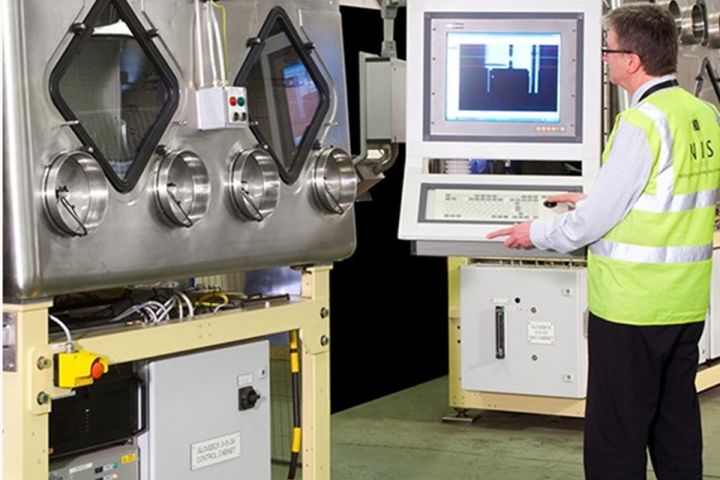The University of Sheffield Advanced Manufacturing Research Centre (AMRC) North West is now working with more than 60 SME businesses in Lancashire.
Melissa Conlon, commercial director, describes it as a “tremendous achievement”, given the organisation has only recently been established in its interim facility in Preston.
Plans for the new purpose-built advanced manufacturing research facility at the Samlesbury Aerospace Enterprise Zone are progressing well, with a scheduled opening date of March 2021.
Lancashire is a world-leading region for advanced manufacturing and engineering with about 24 per cent of Lancashire SMEs engaged in these sectors.
AMRC North West has an ERDF fullyfunded contract to help more than 200 manufacturing SMEs adopt new technologies and processes to ensure they are able to compete globally.
And while the help and support it is delivering is varied, a number of key themes have been identified.
Companies are keen to investigate how they can obtain more real-time data from their manufacturing equipment and processes to inform potential gains in productivity and quality.
Manufacturers are interested in exploring Additive Manufacturing (3D printing), especially for prototyping, tooling, moulds and for concept design.
Looking for cloud control
Set up in 1994, Burnley-based family business Xavier Engineering provides products and engineering services to the aerospace, defence, electronics, instrumentation and medical industries.
The company was using a software package to manage its accounts and was looking to expand into the system’s manufacturing module to help with inventory and manufacturing control.
Xavier asked AMRC North West to investigate alternative solutions to help the company’s understanding of other Enterprise Resource Planning (ERP) systems.
The recommendation was for Xavier to take advantage of the opportunities provided by cloud-based software.
AMRC North West helped Xavier Engineering develop an understanding of how such applications could merge into its current manufacturing system.
Opening new doors
Established in the 1950s, Pendle Doors is a family-run, sustainable door manufacturer based in Blackburn. The company boasts a large client base in sectors including education, healthcare, residential, construction and leisure.
Director Ryan Anderson contacted AMRC North West and explained the need to ensure that fire regulations were precisely followed after big changes in the fire door industry following the Grenfell Tower disaster.
The company asked the AMRC team to design and prototype an additively manufactured jig which would be attached to pin guns used to fix glazing bead in place.
Specification requirements mean the pins have to be fired into the bead at specific angles, and specific intervals. Although these specifications were being met using existing production procedures, the new jig would speed up the process and enable the business to increase production while ensuring the product met all criteria.#
The jig was designed and a prototype was manufactured by AMRC North West, with Pendle Doors testing it to assure its requirements were met.
Once Pendle Doors was satisfied with the design, several jigs were produced through additive manufacturing.
The use of the jig will lead to productivity gains and reduced waste. Pendle Doors is now considering further applications of additive manufacturing within its business.
Bringing virtual reality into the workplace
AMRC North West has been working with NIS Integrated Engineering on a project investigating the use of Virtual Reality (VR) to help its design team.
The business, based in Chorley, provides bespoke engineered solutions for the civil nuclear, defence nuclear, science and technology sectors.
Julie Mykels, NIS business changes and improvement manager, and Marc Green, principal development engineer, approached AMRC North West team for assistance.
The bespoke nature, size and complexity of the items being made means that visualising the completed unit before manufacture is difficult to achieve using Computer Aided Design (CAD). Being able to visualise the product premanufacture will help in terms of positioning electrics and improve functionality of the part.
The customer journey would also be improved as they would understand exactly what they are going to receive. This would reduce potential changes to the manufactured product later on in the process, which could be costly.
AMRC North West created a VR demonstration of a glovebox model, with a study of the necessary steps NIS would have to take to bring VR capability into its business.
- To read this feature in full and access further Lancashire business news, advice and analysis subscribe to Lancashire Business View magazine or join the LBV Hub from just £2.50 per month. Click here to subscribe now.
Enjoyed this? Read more from Lancashire Business View























